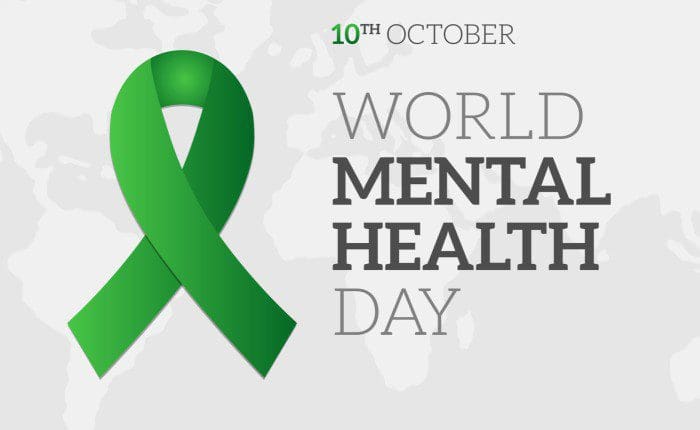Fear and anxiety often occur together, but these terms are not interchangeable. Fear is an intense biological response to immediate danger, while anxiety is an emotion regarding things we think may happen. Anxious and frightening emotions can feel the same and be easily confused, but when comparing fear vs anxiety, there are several important differences between the two.
Examining fear vs anxiety can help you determine what you are truly experiencing. Even though symptoms commonly overlap, a person’s experience with these emotions differs based on their context.
Contents
What Is Fear?

Fear is the result of a threat or impending danger. And while scary, they are a natural part of the human makeup, which is protective of life and limb. Fear is a quality that is shared by all higher animals, as no members of any species would ever survive without a protective mechanism to anticipate and react to danger, thereby protecting themselves from harm.
When one feels fear, the body undergoes several near-instantaneous physical reactions designed to help escape from danger. The heart starts to race, breathing becomes shallower and faster, and one might jump or flinch. All the physical changes that fear causes help us respond rapidly to danger.
This instantaneous physical response is one important difference when it comes to fear vs anxiety. If you’re walking down a dark street, for example, and someone points a gun at you and says, “This is a robbery,” then you’d likely experience a fear response. The danger is real, definite, and immediate.
Is Anxiety Normal?
Anxiety is a word we use for some types of fear that are usually to do with the thought of a threat or something going wrong in the future, rather than right now. While anxiety and fear feel similar, anxiety is a reaction to emotions instead of danger in the environment.
Suppose you are walking down a street at night. There aren’t any sounds coming from the bushes and the only people you see is a family walking with their dog ahead of you. Even so, you start to worry that something bad is going to happen. You experience a similar reaction: Your heart starts racing, your breathing becomes short and shallow, and your muscles tense up.
You are experiencing anxiety. Nothing has happened that would signal any danger; your reaction is from the possibility of danger. Anxiety is a natural human emotion in response to a stressful or perceived threatening situation that may occur, rather than one that is occurring around us.
Although the focus of the responses are different in fear vs anxiety, fear and anxiety are interrelated. When faced with fear, most people will experience the physical reactions that are described under anxiety. Fear can cause anxiety, and anxiety can cause fear.
How Do I Know if I Have an Anxiety Disorder?

The difference between fear vs anxiety is also based on a difference between emotions that are functional vs excessive and dysfunctional. Fear is an emotional reaction to a specific, real danger, while anxiety is an excessive and unfocused fear that may be triggered by a variety of stimuli. Anxiety caused by stress may persist long after the trigger is removed or arise with no trigger at all.
When anxiety continues to flare, you might find it difficult to carry on daily activities. Maybe you no longer want to walk down the street at night. When anxiety continues, your fear of your anxiety can grow. This cycle can lead to developing unhealthy behaviors as a way to avoid what causes you anxiety.
These excess feelings of anxiety at seemingly normal events are classified as anxiety disorders when they start to interfere with everyday life, such as doctor’s appointments, grocery shopping, or getting around town. Approximately 20% of individuals in the US experience symptoms of an anxiety disorder during their lifetime.
Just like there’s a difference between fear vs anxiety, there is also a difference between feeling anxious and having an anxiety disorder. An anxiety disorder is a mental health condition. It’s normal to be anxious in certain situations, but if you have feelings of anxiety over a long period of time and in inappropriate situations, it may be a sign that you have an anxiety disorder.
When someone experiences an anxiety disorder, anxiety often comes up unexpectedly, for no apparent reason. Their anxiety response to a given trigger is much stronger than they would expect, and they experience a lot of unreasonable anxiety, such as fear of a situation that likely will never happen.
With anxiety disorders, anxiety may last for a long time, long after the situation or problem has been resolved. Anxiety may feel impossible to control or manage, and you may begin to avoid specific places or actions that often cause anxiety.
Fear vs Anxiety: Finding Help
In general, professionals treat anxiety disorders with a combination of psychotherapy, medications, and self-help. In many cases, psychotherapy is recommended as the first treatment, with medications recommended if psychotherapy doesn’t work on its own.
Self-help includes little things you do every day to take care of yourself, like eating well, staying active, getting enough sleep, and watching your use of alcohol and drugs. These strategies can have a big impact on your long-term well-being.
At Baton Rouge Behavioral Hospital, we offer comprehensive treatment for a variety of adult psychiatric problems, including anxiety. We’re dedicated to providing all the tools you need to take control of your unique mental state, and our programs include:
- Individual counseling
- Daily interaction with therapists
- Friendly, experienced caretakers
- Nutrition education
- Group counseling and peer support
- Reestablishing communication skills
If you are wondering how to cope with anxiety so that it no longer interrupts your happiness, give us a call at Call Baton Rouge Behavioral Hospital: (225) 567-8698 or complete a confidential contact form for more information.
Panic attacks usually only last for a short period of time, usually reaching their peak and passing within 10 minutes. A panic attack can last anywhere from just a few minutes to being as long as 30 minutes.
Anxiety is a natural response to things that may stress or worry you, but feeling anxiety when there isn’t any clear reason to is a sign of having an anxiety disorder. Generally, if you feel anxious long enough that it begins to interfere with your daily life, you may wish to speak to somebody about the anxiety that you feel.
The fear reaction is an intense physical response to an immediate danger. On the other hand, anxiety is worry or unease about something that may happen.

















